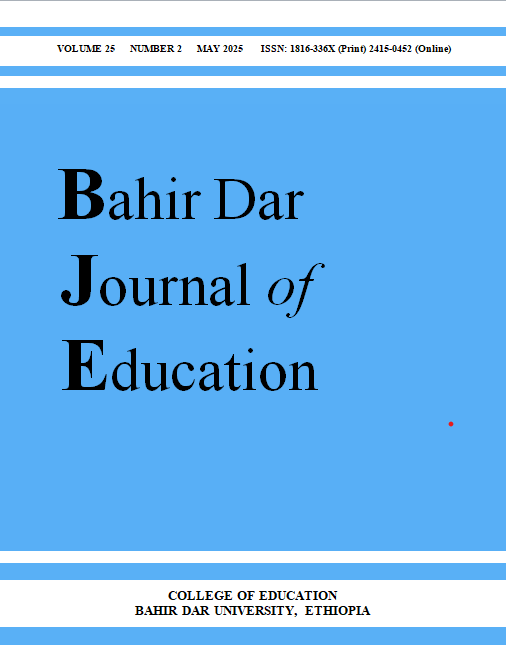Sustainable primary school leadership in Ethiopia: The support or hindrance of policies of collective capacity and school culture
Abstract
he study adopts a case study design to explore whether collective capacity and school culture policies support or impede the adoption of sustainable school leadership (SSL) in the Ethiopian educational system. Sources of data are policy documents such as education and training policy, education sector development programs, primary school standards, and policies of selection and placement of school principals. We select these sources based on the criteria that they are official documents, have relevant content, and are functional at the time of the study. We analyze data with a combination of thematic and content analysis. The finding of the study indicates that some collective capacity and school culture policies support the materialization of SSL, whilst others undermine, or at least do not support, its implementation. Although policies appear to support SSL adoption, in practice, certain key collective capacity and school culture policies have a substantial undermining influence, and others lack mechanisms for practical implementation. We conclude that collective capacity and school culture policies largely undermine rather than support the materialization of SSL. We recommend to the Ministry of Education, among other things, the improvement of the policy of qualification level of teachers and the field of qualification of principals, and the provision of a manual to support the creation and maintenance of school culture.
Copyright (c) 2025 Tesfaye Gemechu Gurmu, Getnet Tizazu Fetene(Ph.D.), Abebayehu Aemero Tekleselassie(Ph.D.)

This work is licensed under a Creative Commons Attribution 4.0 International License.
Authors who publish with this journal agree to the following terms:
- Authors retain copyright and grant the journal right of first publication with the work simultaneously licensed under a Creative Commons Attribution License that allows others to share the work with an acknowledgement of the work's authorship and initial publication in this journal.
- Authors are able to enter into separate, additional contractual arrangements for the non-exclusive distribution of the journal's published version of the work (e.g., post it to an institutional repository or publish it in a book), with an acknowledgement of its initial publication in this journal.
- Authors are permitted and encouraged to post their work online (e.g., in institutional repositories or on their website) prior to and during the submission process, as it can lead to productive exchanges, as well as earlier and greater citation of published work (See The Effect of Open Access).

